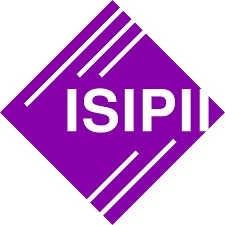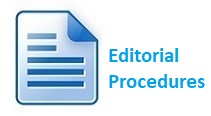Knowledge sharing dalam komunitas Global Empowerment Steps
Abstract
Global Empowerment Steps is a social community with three main pillars: education, health, and the environment. The community aims to conduct social programs around Integrated Waste Disposal Sites (TPST). To maintain its three main pillars, Global Empowerment Steps always transfers knowledge among its members in making program innovations through knowledge creation. This research aims to discover knowledge sharing in knowledge creation carried out by the Global Empowerment Steps community and the key to the success of knowledge-sharing activities in the Global Empowerment Steps Community. The research method used is qualitative with a case study approach. Data collection was obtained through observation, interviews, documentation, and literature study. Informants were selected through a purposive sampling technique by selecting four community members who fit the criteria. The results of this study show that the Global Empowerment Steps community implements knowledge sharing with the method of expressing opinions through coordination meetings and informal discussions. The success factor of knowledge sharing is due to the freedom of to state opinion, a family-like organizational culture, and the blending of different background experiences. Knowledge sharing applied by Global Empowerment Steps begins with the delivery of knowledge and experience possessed by each member, documenting and disseminating knowledge, and ends with the absorption of knowledge to be practiced and disseminated into tacit knowledge again so as to produce new knowledge.
Keywords
Full Text:
PDFReferences
Anwar. (2020). Teori dan praktek manajemen pengetahuan. PustakaOne.
Fatimah, R. M. (2020). Kegiatan knowledge sharing pada komunitas the local enablers Jatinangor. Universitas Padjadjaran.
Global Empowerment Steps. (2021). No Title.
Iskoujina, Z., & Roberts, J. (2015). Knowledge sharing in open source software communities: Motivations and management. Journal of Knowledge Management, 19(4), 791–813. https://doi.org/10.1108/JKM-10-2014-0446
Khoyrudin, M., Komariah, N., & Rizal, E. (2020). Kegiatan berbagi pengetahuan sebagai upaya peningkatan kompetensi guru di SMKN 4 Bandung. Jurnal Pustaka Budaya, 7(1), 33–40. https://doi.org/10.31849/pb.v7i1.3594
Khuddami, M. (2015). Pengaruh budaya kekeluargaan terhadap kinerja karyawan di BMT Maslahah Sidogiri Pasuruan. Universitas Islam Negeri Maulana Malik Ibrahim.
Kurniawan, A. Y., & Prasetyawan, Y. Y. (2017). Knowledge sharing antar peternak pada komunitas lovebird Semarang. Jurnal Ilmu Perpustakaan, 6(3), 561–570.
Nonaka, I., & Takeuchi, H. (1995). The knowledge-creating company: How Japanese companies create the dynamics of innovation. Oxford University Press. https://scholar.google.com/scholar_lookup?title=The knowledge-creating company&author=I. Nonaka&author=H. Takeuchi&publication_year=1995
Pratiwi, M. A., Komariah, N., & Anwar, R. K. (2021). Strategi pemilihan komunikator dalam diseminasi informasi kesehatan melalui program “waktu belajar ii” di TPST Bantar Gebang Bekasi. Informatio: Journal of Library and Information Science, 1(3), 295–310. https://doi.org/10.24198/inf.v1i3.35833
Retno, E., & Nurisani, R. (2020). Model knowledge management di Perpustakaan Universitas Padjadjaran. Lentera Pustaka: Jurnal Kajian Ilmu Perpustakaan, Informasi, Dan Kearsipan, 6(1), 23–36.
Rodin, R., Kismayati, T., & Margono, T. (2015). Implementasi knowledge sharing sebagai upaya peningkatan efektivitas keprofesionalan pustakawan (studi kasus di Perpustakaan Stain Curup). Jurnal Pustakawan Online.
Saepudin, E., Rusmana, A., & Budiono, A. (2016). Penciptaan pengetahuan tentang tanaman obat herbal dan tanaman obat keluarga. Jurnal Kajian Informasi & Perpustakaan, 4(1), 95–106. https://doi.org/10.24198/jkip.v4i1.11633
Sahliani, J. W. (2021). Studi tentang manajemen pengetahuan pada tradisi upacara adat ngarot sebagai wisata budaya: Studi kasus tentang upacara adat ngarot di Desa Lelea Kabupaten Indramayu Provinsi Jawa Barat. Universitas Padjadjaran.
Sugiyono. (2013). Metode penelitian kuantitatif, kualitatif dan R&D. Alfabeta.
Sulardja, E. C., Lusiana, E., & Rohman, A. S. (2021). Knowledge sharing pelayanan anak di Pelkat Pelayanan Anak GPIB Gloria. Sabda: Jurnal Teologi Kristen, 2(2), 1–21. https://doi.org/10.55097/sabda.v2i2.31
Yin, R. K. (2015). Studi Kasus: Desain dan Metode (14th ed.). PT. Rajagrafindo Persada.
Yusup, P. M. (2019). Perspektif manajemen pengetahuan informasi, komunikasi, pendidikan, dan perpustakaan. Rajawali Pers.
DOI: https://doi.org/10.24198/inf.v3i1.44907
Refbacks
- There are currently no refbacks.
Copyright (c) 2023 Informatio: Journal of Library and Information Science

This work is licensed under a Creative Commons Attribution-ShareAlike 4.0 International License.
Informatio Indexed by:
Editorial Office :
Library and Information Science Study Program, Building 3 Floor 2, Faculty of Communication Science, Universitas Padjadjaran
Jl. Raya Bandung Sumedang Km. 21 Jatinangor, Sumedang 45363
Principal Contact :
Phone : 08122184219
Email : rully.khairul@unpad.ac.id

 ,
,




2.png)


